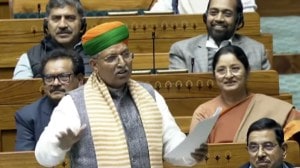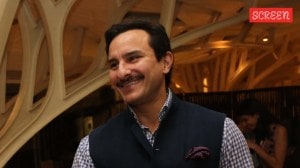“Government Primary Smart School (GPS), Bazigar Basti, Bhadla” reads the board at the entrance. There’s more to the freshly painted board than meets the eye: In its big, bold letters are an assertion and a pushback by the residents of Bazigar Basti Bhadla, a village in Ludhiana’s Khanna, around 60 km from the district headquarters.
Two months ago, the Aam Aadmi Party (AAP) government in Punjab issued an order to rename 56 government primary schools which had caste or community references in their names “to ensure that there is no caste-based segregation in society” and to guard against the “profound effect of such names on tender minds of children”. All schools complied, except the one at Bazigar Basti Bhadla.

The villagers not only refused to rename the school by removing “Bazigar” from its name but also submitted a resolution, passed by the panchayat, to the state Education Department saying that they want to retain the original name. Villagers say that the name is part of their identity “which they aren’t ashamed of” and a reminder of an ongoing legal battle for their basic rights with their neighbouring village of mostly upper-caste people.
The school, in Khanna block of Ludhiana district, has classes from pre-primary to 5 and operates in a basti (settlement) of Bazigars, a notified Scheduled Caste (SC) community in Punjab whose members are mostly descendants of Partition migrants.
 “Most funds would be spent on upper-caste areas,” says scrap dealer Shamlal, 40, whose wife Paramjit Kaur is the village sarpanch.
“Most funds would be spent on upper-caste areas,” says scrap dealer Shamlal, 40, whose wife Paramjit Kaur is the village sarpanch.
The village with 1,200 residents was until 2008 part of Bhadla, a bigger village whose panchayat was dominated by upper-caste Jat Sikhs. The villagers of Bazigar Basti either make a living performing traditional baazi (acrobatics) in village fairs or work as ragpickers, scrap sellers and manual labourers. Residents of Bazigar Basti say that as part of Bhadla, they were denied their share of resources.
“Most funds would be spent on upper-caste areas and nobody cared about Bazigar Basti,” says Shamlal, 40, a scrap dealer whose wife Paramjit Kaur is the village sarpanch.
The battle to retain the school name is tied to an ongoing legal tussle with the neighbouring Bhadla village. Since 2019, the High Court has been hearing Bazigar Basti’s claim for one-third of Bhadla village’s shamlat land (common land in a village owned by a panchayat). Shamlat land is mainly used for cultivation. Rule 6 of the Punjab Village Common Land (Regulation) Rules, 1964, states that “one-third of the cultivable land proposed to be leased, shall be reserved for members of the Scheduled Castes only”.
Story continues below this ad
Shamlal says that in the absence of any shamlat land, their panchayat has no source of income. “It is our right to have common land like every other village,” he says.
 Rule 6 of the Punjab Village Common Land (Regulation) Rules, 1964, states that “one-third of the cultivable land proposed to be leased, shall be reserved for members of the Scheduled Castes only”.
Rule 6 of the Punjab Village Common Land (Regulation) Rules, 1964, states that “one-third of the cultivable land proposed to be leased, shall be reserved for members of the Scheduled Castes only”.
Fariyad Singh Virk, the advocate for Bazigar Basti villagers in the High Court, says: “After the panchayats separated in 2008, Bazigar Basti Bhadla villagers didn’t get their share of the common land, which is the right of every village. They are not even owners of the land on which their houses are constructed currently. We are fighting this battle for their rights legally.”
Shamlal adds: “With the separation of our panchayats, we are entitled to one-third of shamlat land. We need this share to generate income for our village and carry out development works. It is only after we got our own panchayat that some development has taken place. Now we have our own anganwadi, a community centre and this primary school, but we are still at the mercy of our neighbours — they are not giving us land for a water tank. We cannot depend on the government for every small development work. Earlier, when we were a part of Bhadla, the lion’s share of funds went to upper-caste areas and no one cared about Bazigar Basti. We cannot afford to let this school go if the name is changed as it may dilute our community’s right over it.”
Which is why the villagers hold the school and its name close to their hearts.
Story continues below this ad
 Fariyad Singh Virk, the advocate for Bazigar Basti residents in the High Court, says: “After the panchayats separated in 2008, the people of Bazigar Basti Bhadla didn’t get their share of the common land. They are not even owners of the land on which their houses are constructed currently.”
Fariyad Singh Virk, the advocate for Bazigar Basti residents in the High Court, says: “After the panchayats separated in 2008, the people of Bazigar Basti Bhadla didn’t get their share of the common land. They are not even owners of the land on which their houses are constructed currently.”
“This school has been running since the 1960s, but never had its own building until 2000. It was running from a nearby dharamshala [community centre]. For decades, our children studied in a school without a building. It was only in 2000 that the building came up after we kept begging the Bhadla village panchayat for our rights. Even after the panchayats were separated in 2008, we never got our basic rights. Till date, there is no government dispensary or health centre in our village or a school for the children after class 5. We do not want our legal battle to get diluted if the school’s name gets changed. Moreover, we or our children are not ashamed of calling ourselves Bazigars. It is our identity, our pride. However, we do not have an issue if the school is renamed after our legal battle is over,” says 70-year-old Inderpal Singh, a community elder and former sarpanch.
Shamlal adds: “If the Bazigar name gets dropped, it will be called ‘Government Primary Smart School (GPS), Bhadla’. That way, we will end up losing our community’s right over it. They may even say that this school doesn’t belong to our children and has to be shifted to a neighbouring village. This school is the only means of education for our children. Families living here are landless and depend on manual labour and scrap-selling for their livelihoods. No family can afford to send their children to private schools.”
Rajesh Gupta, head teacher at the school, says the panchayat has submitted a written application to the Education Department, explaining why they do not want the school to be renamed.
“Till three years ago, when I joined, there wasn’t even a kitchen shed to cook mid-day meals or washrooms in the school. We got them built through donations, with a part of it coming from government funds. But even now, two of the seven rooms have been declared unsafe so we have to make do with four rooms for pre-primary to class 5 children. There’s no office for the head teacher so we put a chair and table outside when parents come to meet us. One classroom is now under construction. There’s no filter or RO for clean drinking water and we drink straight from the tap,” she says.
Story continues below this ad
Gupta adds there are more problems — leaky rooms, damp walls with plaster peeling off and broken floor — but for the 147 children enrolled in the school, most of them from the Bazigar community and a few from migrant families, the school is the only hope. She says: “There’s no other school nearby for Bazigar children.”

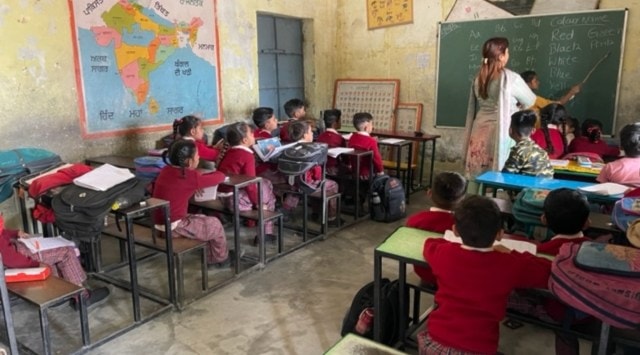

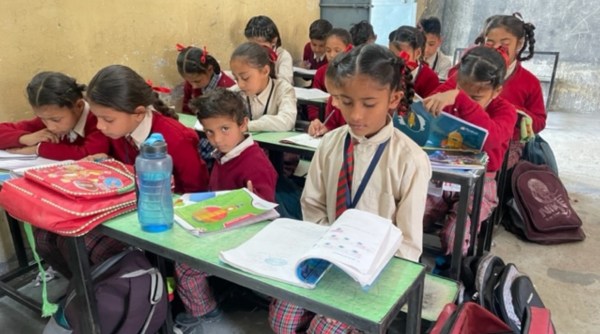 “Most funds would be spent on upper-caste areas,” says scrap dealer Shamlal, 40, whose wife Paramjit Kaur is the village sarpanch.
“Most funds would be spent on upper-caste areas,” says scrap dealer Shamlal, 40, whose wife Paramjit Kaur is the village sarpanch.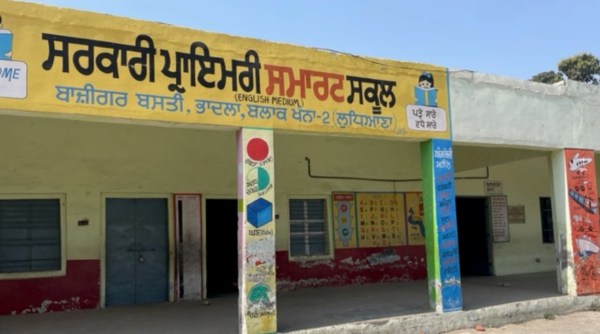 Rule 6 of the Punjab Village Common Land (Regulation) Rules, 1964, states that “one-third of the cultivable land proposed to be leased, shall be reserved for members of the Scheduled Castes only”.
Rule 6 of the Punjab Village Common Land (Regulation) Rules, 1964, states that “one-third of the cultivable land proposed to be leased, shall be reserved for members of the Scheduled Castes only”.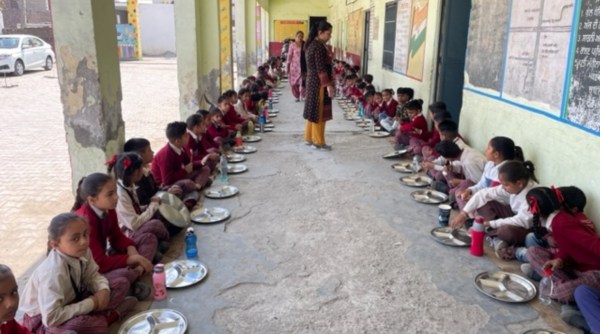 Fariyad Singh Virk, the advocate for Bazigar Basti residents in the High Court, says: “After the panchayats separated in 2008, the people of Bazigar Basti Bhadla didn’t get their share of the common land. They are not even owners of the land on which their houses are constructed currently.”
Fariyad Singh Virk, the advocate for Bazigar Basti residents in the High Court, says: “After the panchayats separated in 2008, the people of Bazigar Basti Bhadla didn’t get their share of the common land. They are not even owners of the land on which their houses are constructed currently.”







